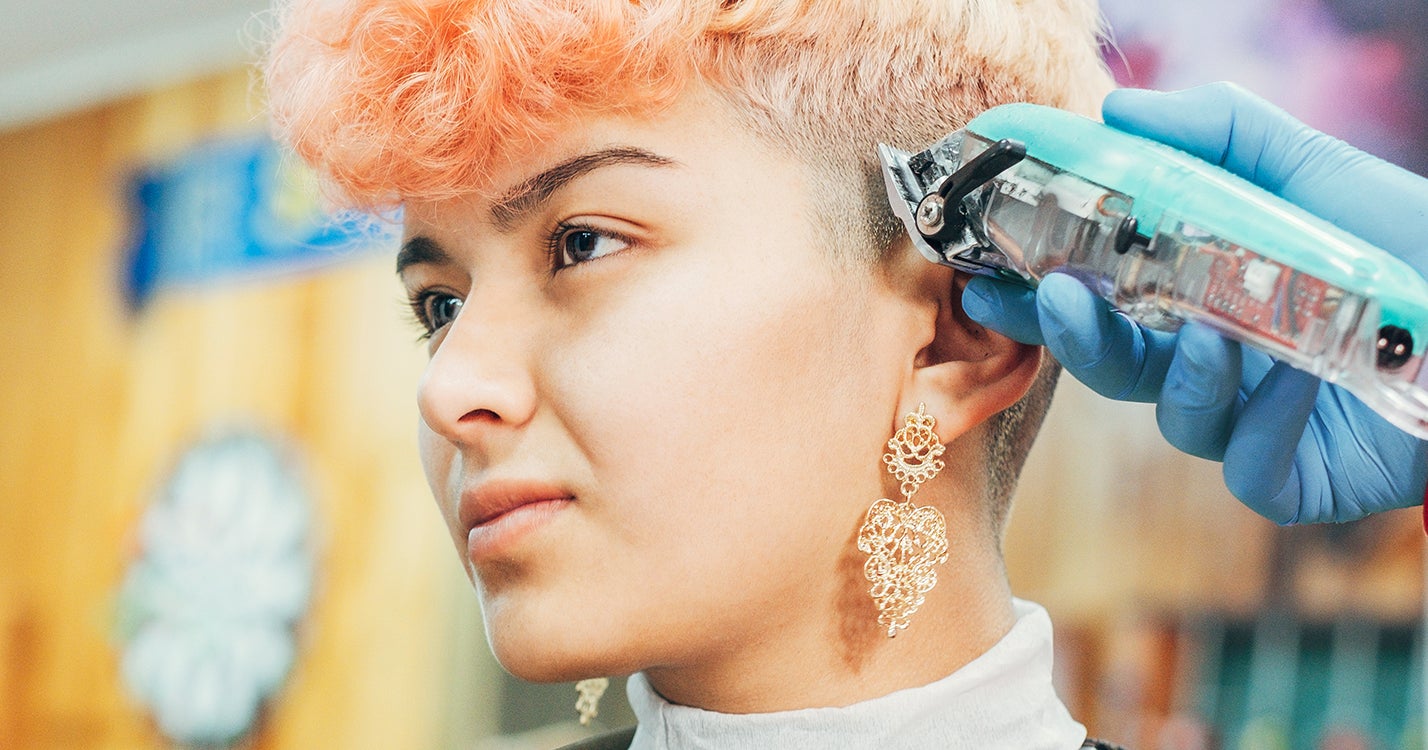Author Caroline Cauchi.David Gennard/Supplied
When Caroline Cauchi isn’t writing bestselling historical fiction such as Mrs Van Gogh, you can find her teaching the next generation of aspiring chart-topping scribes.
In fact, Dr. Cauchi – she has a PhD in creative writing – was marking assignments when The Globe and Mail reached her at her home in England.
“Creative writing as an academic subject is an odd thing to do,” she said during a “welcome bit of procrastination” from grading 80 or so papers. “You have this, ‘Let’s be creative, write anything you want,’ but then, ‘Here are the criteria for this assessment.’ There’s a difference between a PhD novel and a novel for publishing.”
Instructing others about the craft of writing means Cauchi, who also pens contemporary fiction as Caroline Smailes, is constantly thinking about her own. “I can’t just sit still. I think that’s a good thing for any writer. I try to improve constantly.”
Part of that work is looking at how other novelists are using dialogue, creating characters and adapting the form to our times. “In the classics, Thomas Hardy could describe for an entire chapter, but readers won’t accept that any more. Now, I need to look at how I can perhaps write shorter chapters because we live in a social-media world where people are commuting and want to read within stops on a bus or a train.”
It’s a strategy she’s employed in her latest bestseller, Queen of the Mist. The novel uses a grab bag of formats – letters, diary entries, traditional chapters – to tell a fictionalized account of Annie Edson Taylor’s real-life 1901 feat of becoming, at the age of 63, the first person to survive going over Niagara Falls in a barrel. Including multiple techniques helps to keep the reader engaged, she finds, especially for first-person storytelling. “Ultimately, that’s the goal of any writer isn’t it? Narrative drive, to keep the reader wanting to read on.”
The Globe spoke with Cauchi about finding her protagonist, the urgency of her work and the moral ambiguity of writing about a stunter.
When did you first ‘meet’ Annie?
About two years ago. I’d never heard of Annie. If someone had said to me, “Who’s the first person to go down Niagara Falls and survive?” I probably would have thought that they were male – and I hate that about myself, but statistically there are a lot of situations where we would assume, and that would be one of them.
I was actually writing another novel at the time, but my editor said, “Look, I think this is going to tick all of your boxes.” I’m really specific about the type of women that I will write about. I’m never going to write about anybody that I’m going to drag down or “other.” I’m not interested in spending a year of my life on someone I’m going to be negative about. Other people might, but for me it’s about raising up voices.
She came into my life at a time when I was going through major trauma, so the first draft of that novel was not about Annie, it was entirely about me. It was so dark. I gave it to my editor, who didn’t know what was going on in my life. She said to me, “Are you okay? I think you need to step away from this, get some help and then come back to it entirely, and find your hope and joy again.” That’s exactly what I did.
It’s incredible that even when you’re telling the story of a different person who lived in a different century, as a writer you’re the prism, so what you’re going through naturally bleeds into that.
This isn’t saying that I’m a good writer, because I will be the first to criticize myself, but I would say that any good writing is never really about what it initially seems to be about. I say now that I was in my own barrel, and by writing about her I processed so much about myself.
Although this novel is about Annie, it’s not. It’s about me understanding what it is to age, removing the restrictions and boundaries major life changes and trauma bring and place around you. This is a universal novel for women. It’s about female friendship, but it’s about this expectation that women of a certain age have to step into the shadows, and we need to wait there to die.
Telling what you call the ‘stories of invisible, forgotten women’ feels more urgent than ever.
I thought about how I can contribute to this wave of feminism in a way that’s going to reach as wide an audience as possible. Through novels seems to be the obvious stance. Mrs Van Gogh did so well internationally because everybody knows about Vincent. I was then trying to redefine [van Gogh’s sister-in-law] Johanna and to position her alongside Vincent. Not taking away from Vincent’s spectacular achievements and art, but for her to take her rightful place in art history.
That was met around the world with, “People know Vincent, therefore they will learn about Johanna.” That was instant. Whereas with Annie, the feedback from international publishers is, “Well, we don’t know who she is.” They’re missing the point, because that’s exactly what I’m saying. There are women who have achieved phenomenal things who are being erased from the history of those phenomenal things.
There are 16 people who have survived [going over Niagara Falls] and Annie was the first. But because no one knows her name, it’s almost like we’re giving people permission to erase her, and there are so many women like that.
I’m about an hour’s drive from Niagara Falls, but I had never heard of Annie before I picked up this book.
When I was coming to Canada, I was terrified. I felt like I was going to be preaching to a population who knew everything already, and knew more than me. I did an event for Niagara Parks, in the home of [Laura Secord] and everyone knew about her, but nobody knew about Annie.
My academic research is into the ethics of writing. I’d never considered the ethics of writing about a stunter, in writing about someone who had gone over Niagara Falls. I need to process this a little bit more, but to talk about – and promote, for want of a better word – this stunt of a person who achieved something amazing, what does it mean in a society where people might be looking for their moment of fame, or a way out of life?
Annie stood in front of those falls and believed that she would succeed when nobody else had. Now, do I have a moral or ethical responsibility in my writing that I’d never consider? When I went round the parks – and I had an amazing day touring around – there were no mentions of the stunters. It wasn’t something that was promoted or encouraged, for obvious reasons. But what am I doing? It’s a moral grey area.
I think Annie is amazing. To stand in front of the falls in all their power and believe you will do what no man has done before is an amazing stance to have. But that risks death. Am I saying to women that you have to do something no man has done before, and you might risk your life in doing so? I’ve been thinking about that a lot since my time in Niagara.
My take-away, and this is down to your writing, is that Annie’s experience going over those falls was terrifying. She even says in the book that no one should ever attempt it. And the motivation behind it wasn’t glory. She did it for money.
That is key, and that’s what I wanted. Perhaps I’ve been thinking about it more because I’ve been thinking about reality TV, and what people will put themselves through for their moment of fame. That’s my worry. People are always looking for extremes, aren’t they? We live in a society when we’re told to up trauma, up responses. We keep having to shout louder. What does that say about what we have to do now as women to be noticed, and to be heard?















